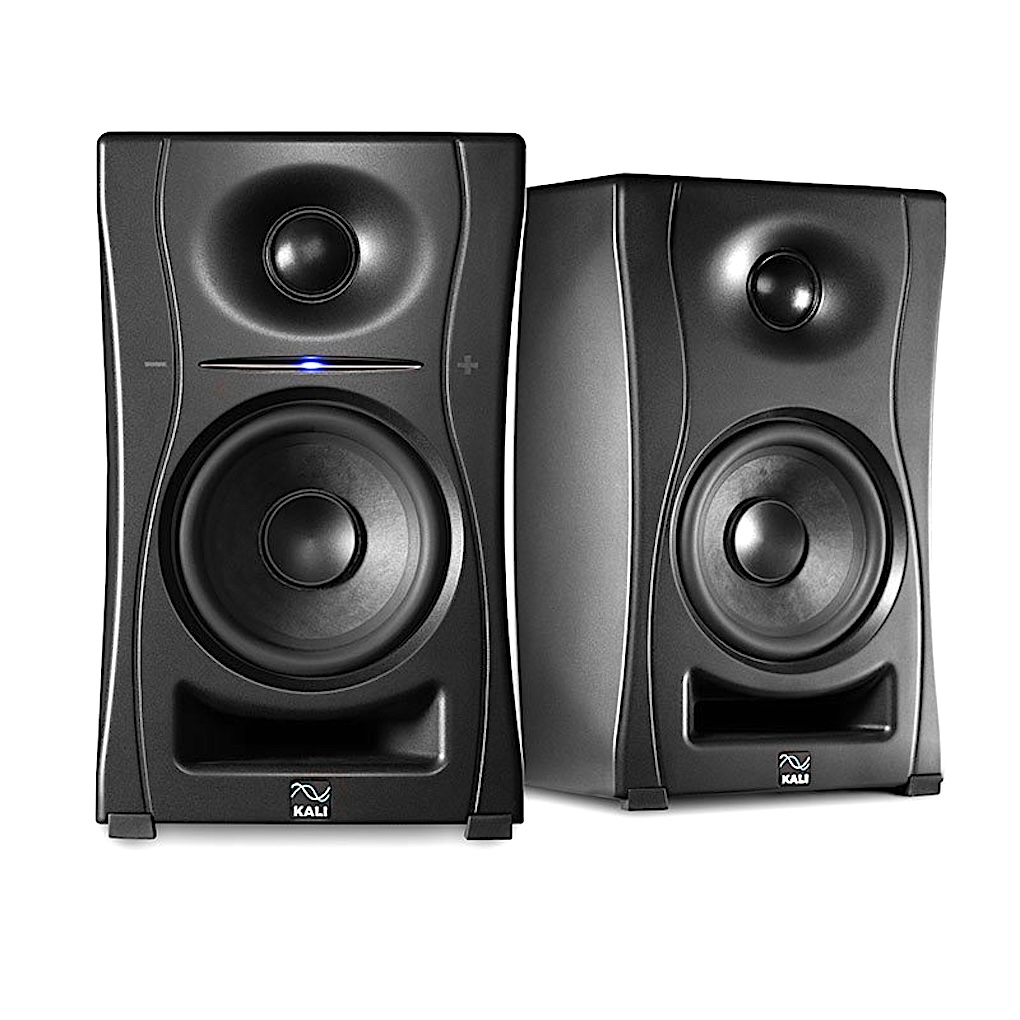- in Production by Bobby Owsinski
- |
- 4 comments
New Music Gear Monday: Kali Audio LP-UNF Desktop Monitor Speakers
Built-in computer speakers have come a long way but they’re still no match for a dedicated set of speakers. That said, it’s difficult to find high-quality monitors that sound good, don’t take up too much space, and don’t cost a fortune. The new LP-UNF desktop monitor system from Kali Audio checks all these boxes and more.

Like most speaker systems of this type, the LP-UNF’s come as a pair with one, the Primary, containing all the IO and electronics. Each unit is two-way, built around a 4.5 inch woofer and a 1 inch dome tweeter utilizing a waveguide for even dispersion. The system is biamped using 40 watt class D amplifiers for both high and low speakers that are crossed over at 1,950Hz.
They can get loud at 103dB SPL and have a frequency response that goes from 39Hz to 25kHz, although the -3dB down points are at 54Hz and 21kHz (both still impressive).
IO Covered
Any kind of desktop monitor requires a lot of different IO capabilities and the LP-UNF’s have that covered nicely. For analog there are balanced ¼” TRS and RCA connectors, while if you want to connect digitally there’s a USB-C input, or you can connect via Bluetooth to your phone or computer.
Keep in mind that the LP-UNF is specifically designed for your desk, so it takes into account reflections from the drivers to the desk that you can set via a DIP switch on the back of the Primary unit. These settings include setting placing them:
- On stands behind your desk,
- On a desk, away from walls,
- On a desk, against a wall,
- On a desk, on speaker stands, away from walls,
- On a desk, on speaker stands, against a wall
- On a recording desk with rack units, away from walls,
- On a recording desk with rack units, against a wall.
More and more we listen from our desktops so high-quality monitors are almost a must-have. At $299, the Kali Audio LP-UNF are hard to pass up. You can find out more here.

